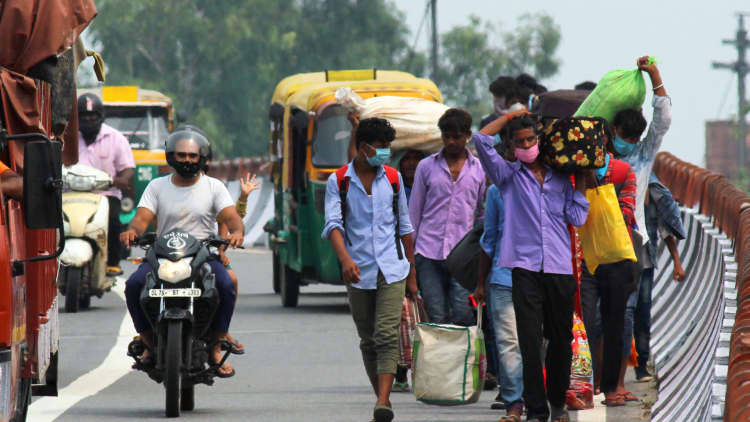
World Bank President David Malpass on Wednesday expressed concerns about the consequences of the coronavirus pandemic on school-aged children in developing countries, especially if there is another spike in infections that prolongs the health crisis.
In an interview on CNBC's "Closing Bell," Malpass said there also are educational challenges in wealthy countries like the U.S. as schools shift to virtual classes that potentially keep parents from returning to work. However, he said his worries are more pronounced about other nations.
"The learning goes backward. That's a particular problem in the developing world," Malpass said. "We think there are ...1 billion children out of school in the developing world waiting, really, for the recovery to take hold. So if there's the second wave, that's a concern."
Malpass is not the first to sound the alarm about the detrimental impact of the pandemic on children. Last month, the United Nations warned that at least 24 million students across the world could drop out of school as a consequence of the Covid-19 outbreak.
"The longer children remain out of school, the less likely they are to return," Henrietta Fore, executive director of the U.N.'s Children's Fund, said during a press call in September. "That's why we are urging governments to prioritize reopening schools when restrictions are lifted."
Malpass, a former U.S. Treasury Department official who became World Bank president in 2019, emphasized the need to control the pandemic through the development of therapies and vaccines. The damage it has caused already is significant, he said, with an additional 150 million people now projected to be in extreme poverty next year.
That represents "a giant worsening of the poverty conditions in the world because of the pandemic and the shutdowns," he said. The number of people living in extreme poverty — meaning on less than $1.90 per day, per the World Bank — had been declining for about a quarter century.
While the pandemic-induced recession has eased in wealthy countries, Malpass said that has not been an experience shared across the world. "Apart from China, many of the developing countries are worse than had been earlier expected, so it's this unequal process of recovery going on," he said.
High-population, poor countries such as India, Ethiopia and Nigeria are especially facing "grave challenges," according to Malpass. He also referenced Zambia, whose government has been requesting delays to its bond payments, including again this week.
There needs to be long-term solutions to help developing nations that have been set back by the pandemic, Malpass contended. He said the World Bank, which has provided billions of dollars in coronavirus support to countries, continues do its part to help foster an economic recovery.
"We're focused on providing additional net resources. That helps. Also helping the countries find ways to attract private sector investment and then, very importantly, this debt-reduction process," he said. The organization is "trying to get the creditors to recognize that it's in their long-term interest and the world's interest to reduce the actual stock of debt in order to create a brighter future for some of the poorest countries."



